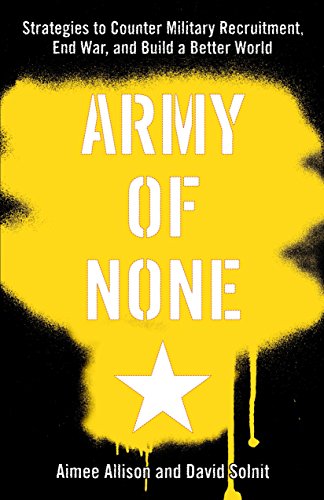In re Afghanistan, why, you might ask, is the world’s hugest, expensivest, most begadgeted military unable to defeat a few thousand angry tribesmen armed with AKs and RPGs?
Easy: Character. The men running the war are mentally the wrong ones to do it.
Think about this for a moment. Suppose that your boss at the lab or law firm or newsroom demanded that, when he entered the room, you leapt spasmodically to your feet, stood rigidly erect with your feet at a forty-five degree angle like a congenitally deformed duck, and stared straight ahead until he gave you permission to relax. You would think, correctly, that he was crazy as a bedbug. If he then required reporters to stand in a square so he could inspect their belt buckles, you would either figure he was a gay blade or call for a struggle buggy and some big orderlies. This weird posturing is not normal, nor are those it appeals to.
Suppose you showed up for freshman orientation at Princeton and your professors bellowed at the tops of their voices, three inches from your face, “Your shoes ain’t shined good, puke. Get down and give me fifty.” (Pushups, that is, which in the military doesn’t mean the better sort of bra.) You would decide that the loon had lost whatever mind he had ever had, and call Domino’s for a cheese pizza, double Haldol.
Should you be so unwary as to suggest the foregoing in print, the response will usually be that militaries need discipline. True, and so do newspapers. However, there is a distinction between discipline and ritualized lunacy. At every publication for which I have worked, the editor was clearly and absolutely in charge. Yet I, seldom senior, could say, “Yeah, Wes, but if we do that, won’t thus-and-so bad thing happen?” His decision was law, but he was happy to hear from subordinates, who might know something he didn’t. Editors do not require vaguely sadomasochistic submissiveness.
 Army of None: Strategi...
Best Price: $3.31
Buy New $7.90
(as of 10:30 UTC - Details)
Army of None: Strategi...
Best Price: $3.31
Buy New $7.90
(as of 10:30 UTC - Details)
This hoopla is not of use in combat. The Taliban seem to be doing rather well. Do you suppose their commanders check their beds to be sure that a quarter will bounce from their blankets?
Now, what kind of kid wants to go for robot training at West Point or boat school at Annapolis? Statistically these kids are bright, gregarious, “motivated” (a favorite military word), athletic, perhaps Eagle Scouts. Psychologically they want (need?) to live under a regime of rigid conformity and obedience that would appear as absurd as it is if we were not accustomed to seeing it among soldiers. That is, they are autoselected not to think for themselves or question decisions from above. They are exactly what universities exist not to produce.
The service academies reinforce these unfortunate characteristics. Their schooling consists of four years of learning what to think, not how to think. There are hours of running in formation (“If I die on the Russian front….”), close-order drill, manual of arms (“Hen-spection…harms!”). Why? There is no military value in being able to shift your rifle from shoulder to shoulder crisply. Like the endless inspections of everything, all of this participation in the hive inculcates groupishness and a curious sense of safety in conformity.
 Nekkid In Austin: Drop...
Best Price: $3.99
Buy New $14.95
(as of 01:20 UTC - Details)
Nekkid In Austin: Drop...
Best Price: $3.99
Buy New $14.95
(as of 01:20 UTC - Details)
The effects are remarkable and, from a standpoint of civilization, undesirable. Large authoritarian organizations make easier the compartmentalization of morality. A colonel typically will be a good neighbor, civic-minded, responsible, unlikely to steal your silverware or kick your dog. If the Pentagon tells him to bomb a city he has never heard of and has no reason to bomb, killing people who pose no threat to him, he will. He feels no individual responsibility for atrocious behavior ordered from above. “I vas only followink orders,” the Nuremberg defense, is the bedrock of military ethics, if any.
Men trained in conformist obedience can work marvels. They just don’t care whether the marvel is good or evil. If you need to handle some vast natural disaster, call on the military. They have the manpower, the aircraft, the medics, the co-operation to get things done now. They will stay on their feet for forty-eight hours without sleep. They take the “mission” (another favorite military word) seriously.
What they do not do particularly well is wage war. Why? Because they have in their minds a view of war that is partly that of offensive linemen — you close with the enemy and destroy him — and partly martial romanticism. They speak of duty, honor, country, bravery, fallen comrades, proving oneself. Military history is rife with silly pageantry, nobility of spirit, glorious charges, and impracticality. Having been trained to think rigidly, they do.
Before Agincourt, there were things the French might profitably have learned about long bows, but didn’t bother because chivalry didn’t concern itself with peasants. It was the glory of the thing, not whether they were committing suicide. English generals killed 20,000 young Brits in one day at the Somme; they hadn’t compared the ideas in their heads with then-current military reality (such as that infantry charges over long distances against massed machine guns, artillery, and barbed wire are not especially productive, unless you manufacture embalming fluid). Authoritarian group-think, love of ritual, romanticism, inattention: not a happy brew.
 A Brass Pole in Bangko...
Best Price: $3.94
Buy New $18.80
(as of 01:20 UTC - Details)
A Brass Pole in Bangko...
Best Price: $3.94
Buy New $18.80
(as of 01:20 UTC - Details)
Further, military service encourages an often-catastrophic sense of masculine potency. Running in formation with fifty other men (“lef-rye-lef-rye-lef-rye-layeff….”) or watching a fighter cat-shot from a carrier deck — the thrill is gonadal, appealing to something deep in the male psyche, a challenge flung at life. It is wonderful, but not a sound basis for judgement.
A consequence is a tendency for militaries of the First World to gravely overestimate themselves, and thus underestimate their enemies. This is why they usually expect wars to be far shorter and cheaper than they turn out to be. As recent examples, the French did not expect those slanty-eyed little zipperheads (les jaunes) to win in Viet Nam, nor did the Pentagon have any idea they the US could possibly lose 60,000 dead and the war in that country, Iraq would be a cakewalk, and those louse-infested towel-heads in Afghanistan had no hope against American swoosh-kerpows. The US military in particular has a compulsory can-do attitude, with slogans like “The difficult we can do today, the impossible takes a bit longer.” This substitution of morale for comprehension is regularly disastrous.
Having no idea what they are getting into is almost doctrine among professional officers. A major does not become a colonel by saying, “General, the French didn’t do all that well at Dien Bien Phu. Maybe we ought to, you know, do something else. We could invade Vanuatu.”
America’s problem is not that its generals prepare for the last war, but that they don’t prepare for it, and then fight it again the same way.
Fred Reed is author of Nekkid in Austin: Drop Your Inner Child Down a Well and A Brass Pole in Bangkok: A Thing I Aspire to Be. His latest book is Curmudgeing Through Paradise: Reports from a Fractal Dung Beetle. Visit his blog.





